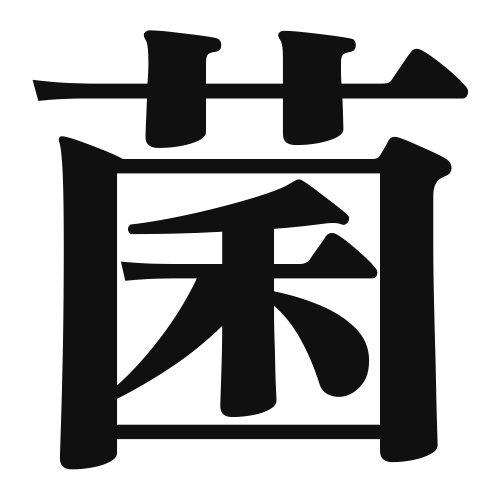1. Overview of Meaning
The kanji “菌” (kin) means “bacteria” or “fungus.” It refers to microorganisms that can be beneficial or harmful, playing a significant role in various biological processes.
2. Formation and Radical
Formation of the Kanji: The kanji “菌” is a phonetic compound (形声文字), which combines the radical for “insect” (虫) with a phonetic component that suggests its pronunciation.
Radical: The radical of “菌” is 虫 (mushi), which means “insect” or “bug.” This radical is commonly found in kanji related to living organisms.
3. Examples of Usage
Common Words and Phrases:
- 細菌 (saikin) – bacteria
- 真菌 (shinkin) – fungus
- 菌類 (kinrui) – microbial life
Example Sentences in Daily Conversation:
- この食べ物には有益な菌が含まれています。 (This food contains beneficial bacteria.)
- カビは真菌の一種です。 (Mold is a type of fungus.)
4. Synonyms and Antonyms
Similar Kanji:
- 細菌 (saikin) – specifically refers to bacteria, while 菌 (kin) can refer to both bacteria and fungi.
- 真菌 (shinkin) – specifically refers to fungi.
Antonyms:
- 健康 (kenkō) – health, which is the opposite of the harmful effects that some bacteria can have.
5. Cultural and Historical Background
Relation to Japanese Culture: In Japan, the understanding of bacteria and fungi is essential in various fields, including food production (like fermentation) and medicine.
Proverbs and Idioms:
- 「菌が繁殖する」(kin ga hanshoku suru) – meaning “bacteria proliferate,” often used to describe situations that can escalate quickly.
